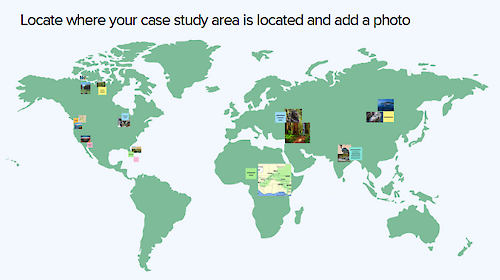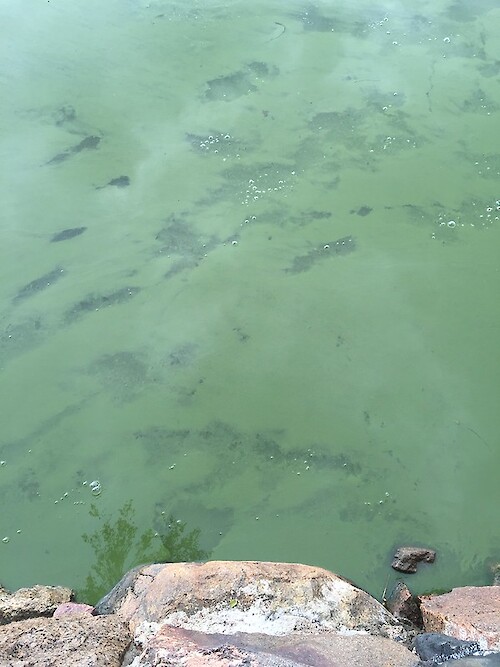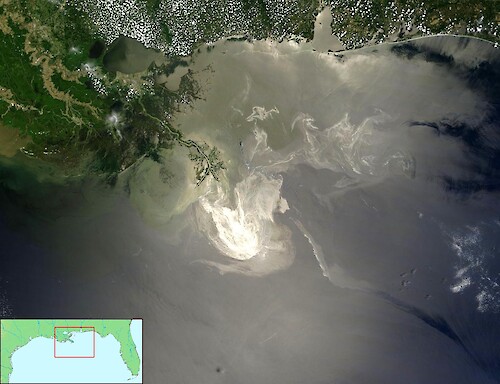Is It Possible to Manage Large and Complex Ecosystems?
Hannah Seddon · 7 commentsThe management of large and complex ecosystems is a task that can only be accomplished by implementing effective management strategies. This includes adaptive management, collaborative planning with diverse stakeholders, and consistent monitoring. The Science for Environmental Management class discussed a few case studies of some of complex ecosystems to gain a better understanding of best management practices.
Several ecosystems were studied that range from single governing entities to multiple governing entities. The larger an ecosystem, the more difficult it is to manage. This is especially true when there are multiple countries or territories with differing cultures, languages, and values involved. A wide range of goals that incorporate economic sustainability and ecosystem restoration must be considered.It can be challenging to meet all of the goals of involved stakeholders. Creating a comprehensive plan is the first step toward achieving management success.

Large ecosystems cover a wide range of human cultures, especially in areas that extend across multiple borders. Often, these diverse communities have differing opinions on sufficient management techniques and ecological values. The Baltic Sea, which is surrounded by 9 European countries, is an excellent example of such an ecosystem. The Baltic Sea suffers from environmental impacts including overharvesting of fish, pollution, and increased nutrient loads, which leads to hypoxia. These countries were relatively successful in coming together to create HELCOM, an organization dedicated to the sustainable management of the Baltic Sea. A Baltic state management study showed that there needs to be more education and open access to environmental knowledge and data.1 It is also emphasized that the global, regional, and local government needs to continuously make adjustments to adapt to the complex and ever-changing environment.

The Coastal Louisiana and Florida Everglades case studies highlight the challenges that face areas governed within a single state, specifically in the Southern US. The Louisiana Coast has faced disruptions from humans such as dredging and oil spills as well as natural disasters such as hurricanes. Human caused environmental damage was brought to the attention of residents and government officials. Using adaptive management and collaboration between stakeholders, effective ecological restoration efforts were implemented.2 The Florida Everglades is a similarly complex area affected by both human and natural disturbances. Current practice is to wait for an issue to reveal itself, and then deal with it accordingly. While it is important to adapt to problems and change, there should also be more emphasis on creating plans and exercising precaution. A study assessing the current management strategies of the Everglades recommended that more focus be put on planning and sustainability.3


So what are the best management strategies for large and complex ecosystems? Whether they extend through multiple countries and territories or exist within the bounds of a single governing entity, collaboration between all parties is key to successful management. Global, regional, and local governments need to continuously adapt and make adjustments based on emerging research and frequent data collection. These case studies also teach us to implement comprehensive planning, adaptive management, effective communication, and data sharing. These methods should be carried out in collaboration between all governing bodies, stakeholders, and the public.
References
- Boesch, D. F. (2006). Scientific requirements for ecosystem-based management in the restoration of Chesapeake Bay and coastal Louisiana. Ecological Engineering, 26(1), 6–26. https://doi.org/10.1016/j.ecoleng.2005.09.004
- Elmgren, R., Blenckner, T., & Andersson, A. (2015). Baltic Sea Management: Successes and failures. AMBIO, 44(S3), 335–344. https://doi.org/10.1007/s13280-015-0653-9
- Gunderson, L., & Light, S. S. (2006). Adaptive management and adaptive governance in the Everglades ecosystem. Policy Sciences, 39(4), 323–334.https://doi.org/10.1007/s11077-006-9027-2
About the author
Hannah Seddon

Hannah Seddon is a graduate student in the Master in Environmental Management in Sustainability program at Frostburg State University in collaboration with University of Maryland Center for Environmental Science. She received her Bachelor’s degree in Environmental Science with minors in Biology, Sustainability, and Geography in 2020 from Frostburg State University. As she completes her studies, she also works on the Frostburg State University campus as an Environmental Specialist at the Western Maryland Regional GIS Center. Her work includes researching and mapping environmental impacts from mining in Western Maryland.
Next Post > CERF Conference in Portland Oregon
Comments
-
Gage Jacobs 2 years ago
Good post, I think this ties together the strategies that both break-out sessions got to. Collaboration between all parties is essential for managing these large and important regions.
-
Antonia Zais 2 years ago
Great post, Hannah! You did a great job highlighting the varying complexities that come with larger and smaller scale ecosystems, as well as their management/governance styles. It's important to recognize these complexities when trying to assess how a community can most effectively benefit from environmental intervention strategies.
-
Joy Amadi 2 years ago
Ecosystems are interconnected and I feel this is one reason why it is really challenging to manage them so yes, I agree with you that adopting the strategies highlighted in your blog would be really effective in managing these large and complex systems. By the way, I love the title of your blog. Great job!
-
Meghna 2 years ago
Great blog, Hannah! You did such a great job incorporating the discussions we had in managing complex ecosystems and you provided good insights on how to effectively collaborate. When you try to tackle management issues across a large ecosystem, there are so many sectors that should be included in decision-making.
-
Colin Scott Vissering 2 years ago
Nice job on this blog Hannah. I really enjoy trying to analyze what makes large scale, multi-national environmental collaboration work better in some parts of the world than others, and your discussion of the complexities of the management challenges is key to success in these types of efforts.
-
Kayla 2 years ago
Great job Hannah! You did a great job examining the challenges and similarities in a variety of complex systems.
-
Samantha 2 years ago
Great blog! I liked the part about Louisiana and Florida management practices. Florida like most other states sit and wait for disaster to hit. A more sustainable approach would be to follow the adaptive management strategies Louisiana practices.